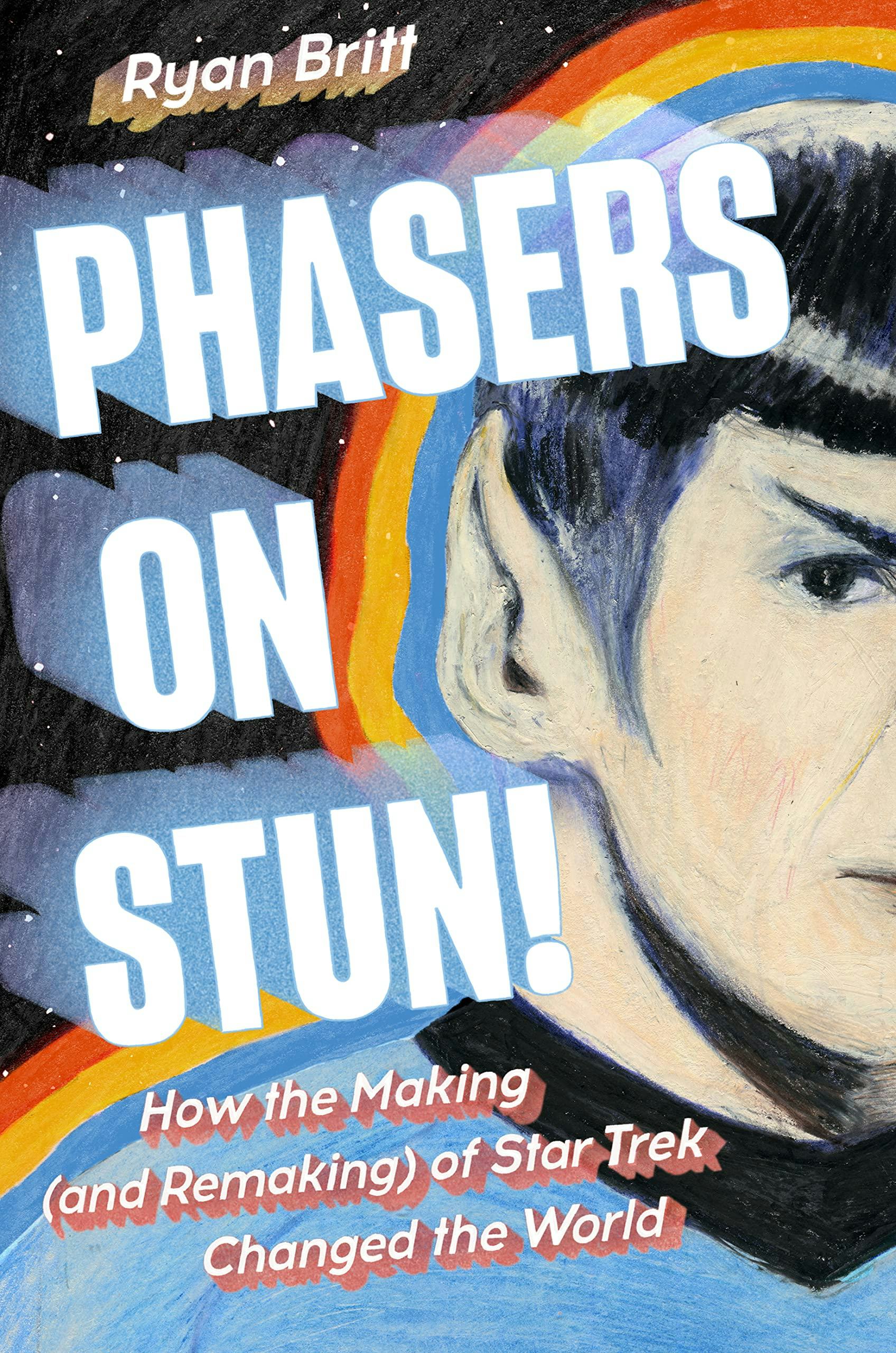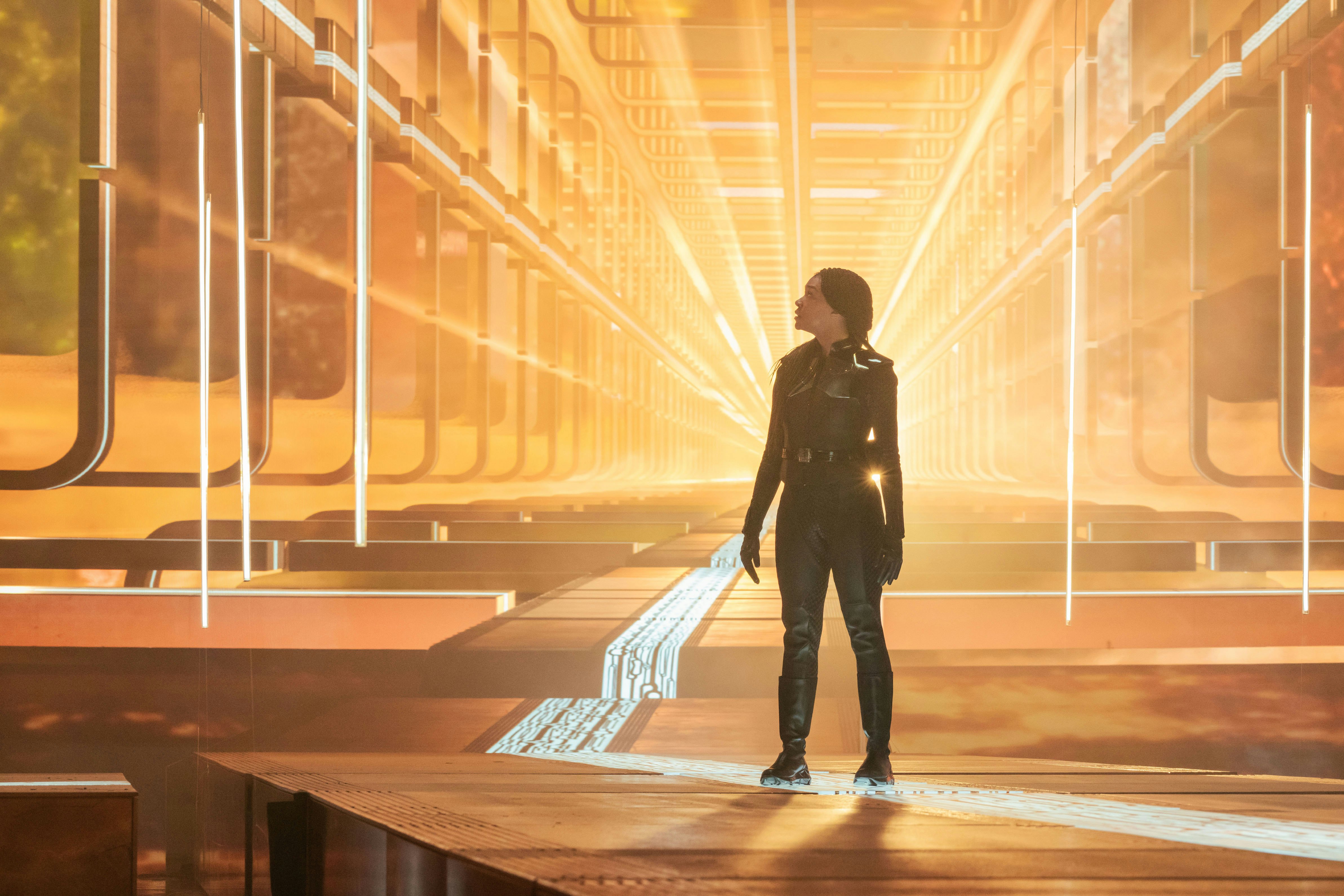
The age of Discovery has come to an end. With “Life, Itself,” the first Star Trek show of the streaming era has concluded its Season 5 storyline and wrapped up two major mysteries, one of which has been floating around since 2018. Discovery’s emotional ending likely wasn’t what fans expected, and the final coda features a leap that reveals not just the end of the starship’s voyages, but that teases a legacy for Burnham and Book that could have big implications for the Trek timeline.
To sort it all out, Inverse caught up with Discovery showrunner Michelle Paradise to figure out what went into devising the series’ final moments, and how it all ties into a specific Trek mystery while also connecting to a different prequel show from almost two decades ago. Spoilers ahead.
Discovery’s original ending
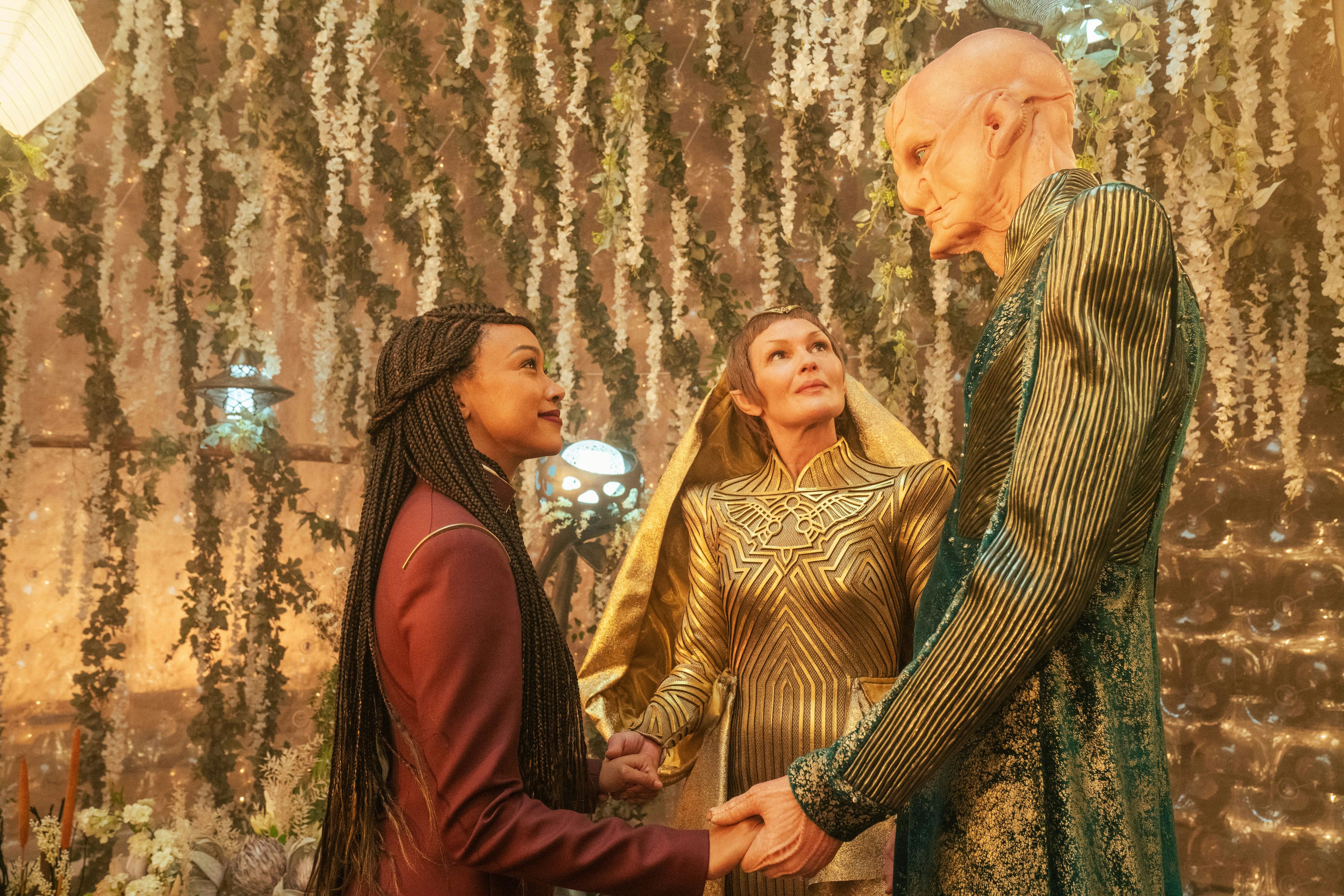
Discovery’s final episode seems to have two endings. After the entire Breen conflict is resolved and Burnham confers with Kovich (David Cronenberg), the episode seems to come to a serene end with Saru (Doug Jones) and T’Rina’s (Tara Rosling) beachy wedding. As guests mingle, Book (David Ajala) shows up late and reconciles with Michael.
“That was it. It was the scene on the beach where Burnham and Book walk off and the camera sort of pans up,” Michelle Paradise tells Inverse. “That was the original ending.”
Had Season 6 been in the works, Discovery Season 5 would have ended in the present tense of the show (3191) with Saru and T’rina’s wedding. Although Discovery Season 5 wrapped production in November 2022, it wasn’t until April 2023 that a coda was developed to conclude the entire series. “We were editing episodes 8 and 9, I think, when we found out that this would be our last season,” Paradise says. “Everything starting from the pan up, that’s the new stuff.”
The flash-forward timeline
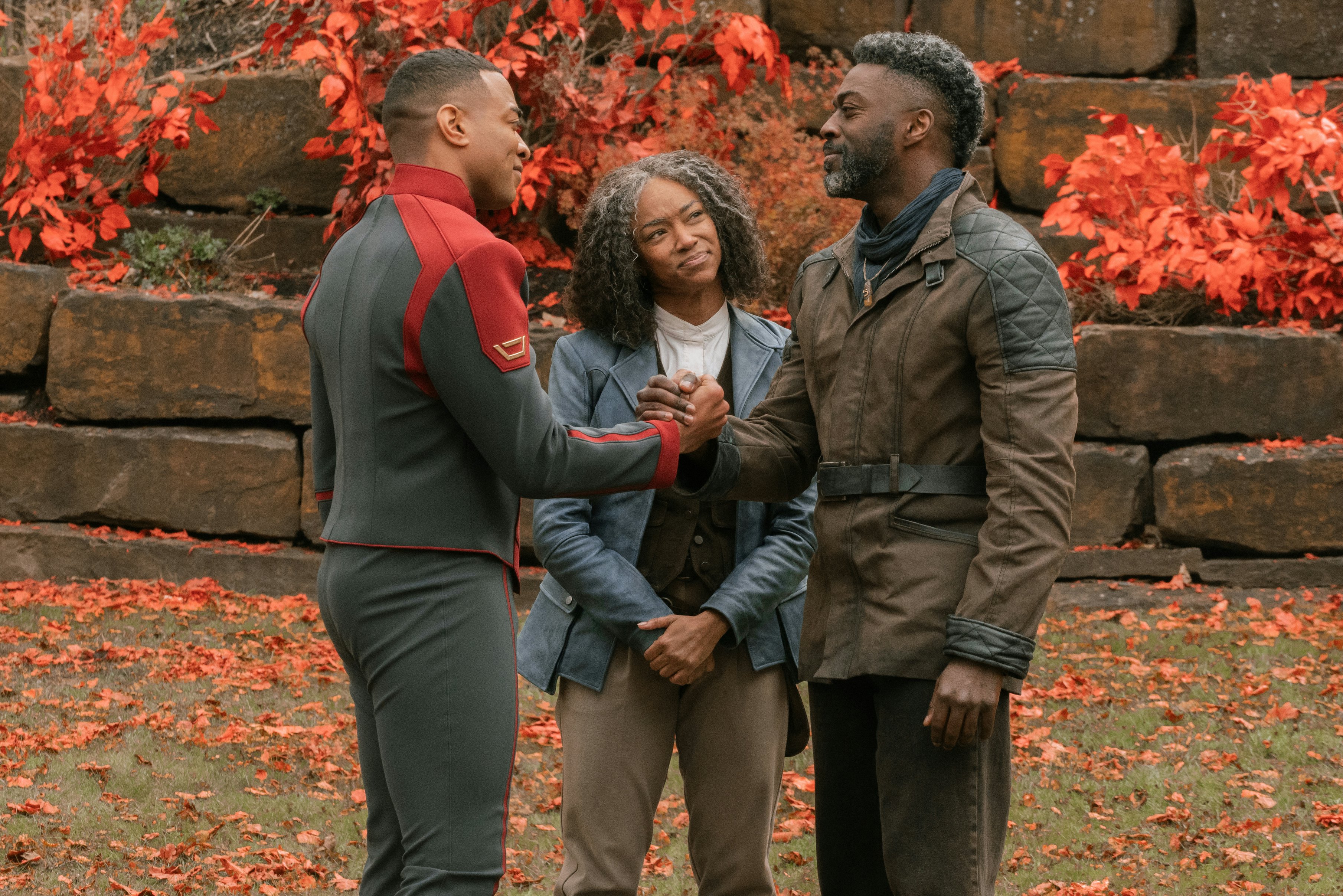
Discovery’s real ending jumps forward several decades. Burnham and Book have distinguished streaks of gray hair, Burnham is referred to as Admiral, and they have a grown son named Leto, named after Book’s deceased brother.
“It’s 30 years later,” Michelle Paradise confirms, which means the Discovery coda takes place around 3221. This also means Discovery’s final moments are set in yet another new century. The crew initially jumped from the 23rd century to the 32nd, and now Burnham takes the USS Discovery on one last mission early in the 33rd century. In doing so, Discovery creates more future-tense Trek canon that other new Trek shows may have to deal with.
“We were nervous, but not because of [creating new canon],” Paradise says. “It was really about how we wrap up a series when we have essentially 10 to 12 pages and three days to shoot it. It was about making sure we did justice to the characters and bring emotional closure for the audience.”
The Enterprise connection
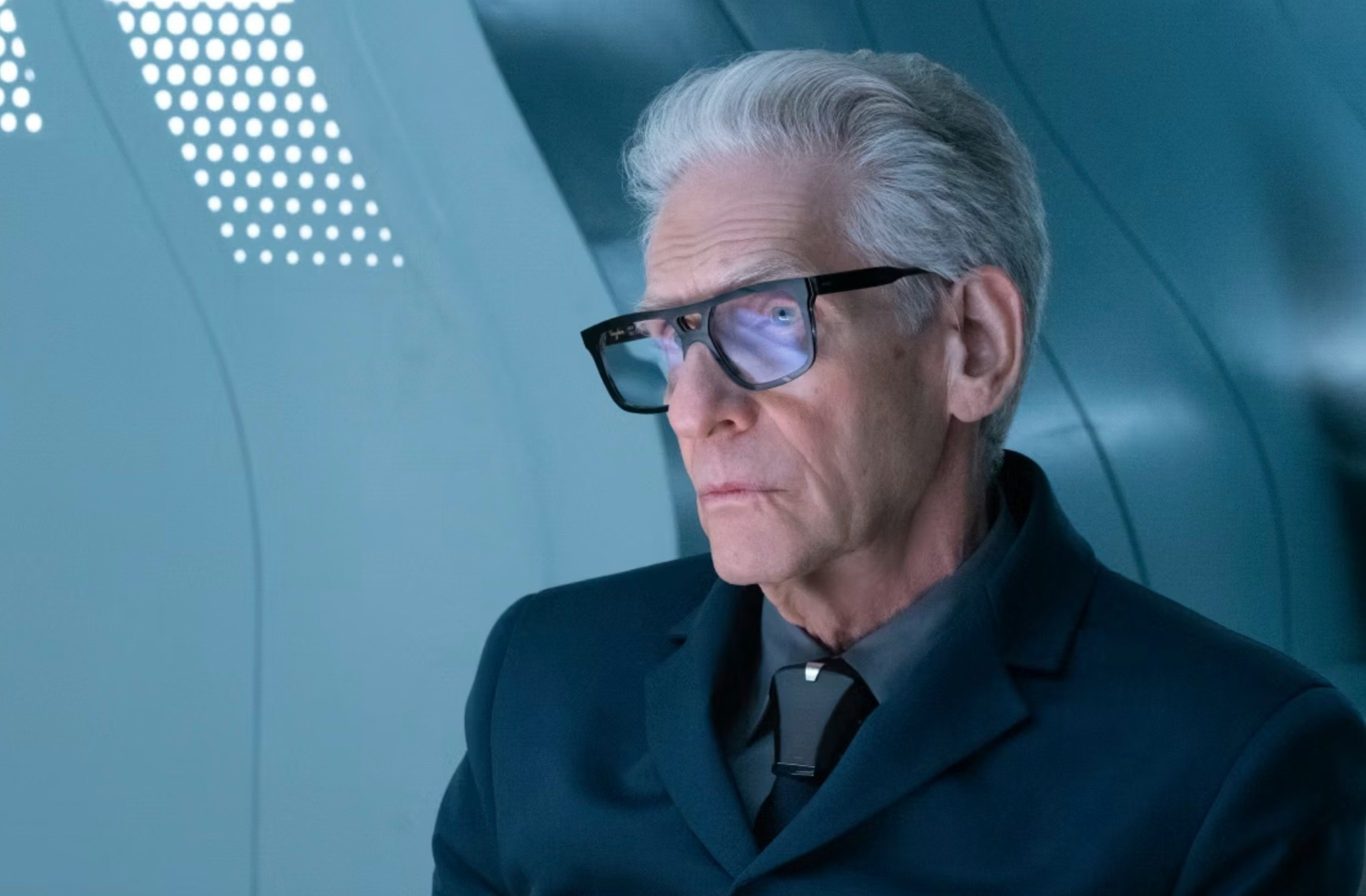
Just before the new material, Michael Burnham unravels a secret that Discovery has been keeping since Season 3. Just who is David Cronenberg’s cryptic character, Kovich? Burnham learns that Kovich is a codename and that his real identity is Agent Daniels. Daniels mentions he served on the USS Enterprise; for those who don’t remember, Daniels was a temporal agent from the 31st century who, in the prequel series Enterprise, often traveled back to the 22nd century to assist the crew. At the time, Daniels was trying to stop other factions from rewriting history. In the 32nd-century context of Discovery, we’ve been told that temporal accords made time travel illegal.
Paradise explains that the writers’ room had planned to reveal that Kovich was Daniels for a while. “I think it was back in Season 4 we kind of decided that was where we were going with him,” she says. “If you rewatch season five, you'll see there are tiny little Easter eggs. He's writing with a pen and paper, which is very weird for the future when they’ve all got holograms. He’s a bit out of time.”
Discovery’s final destination explained
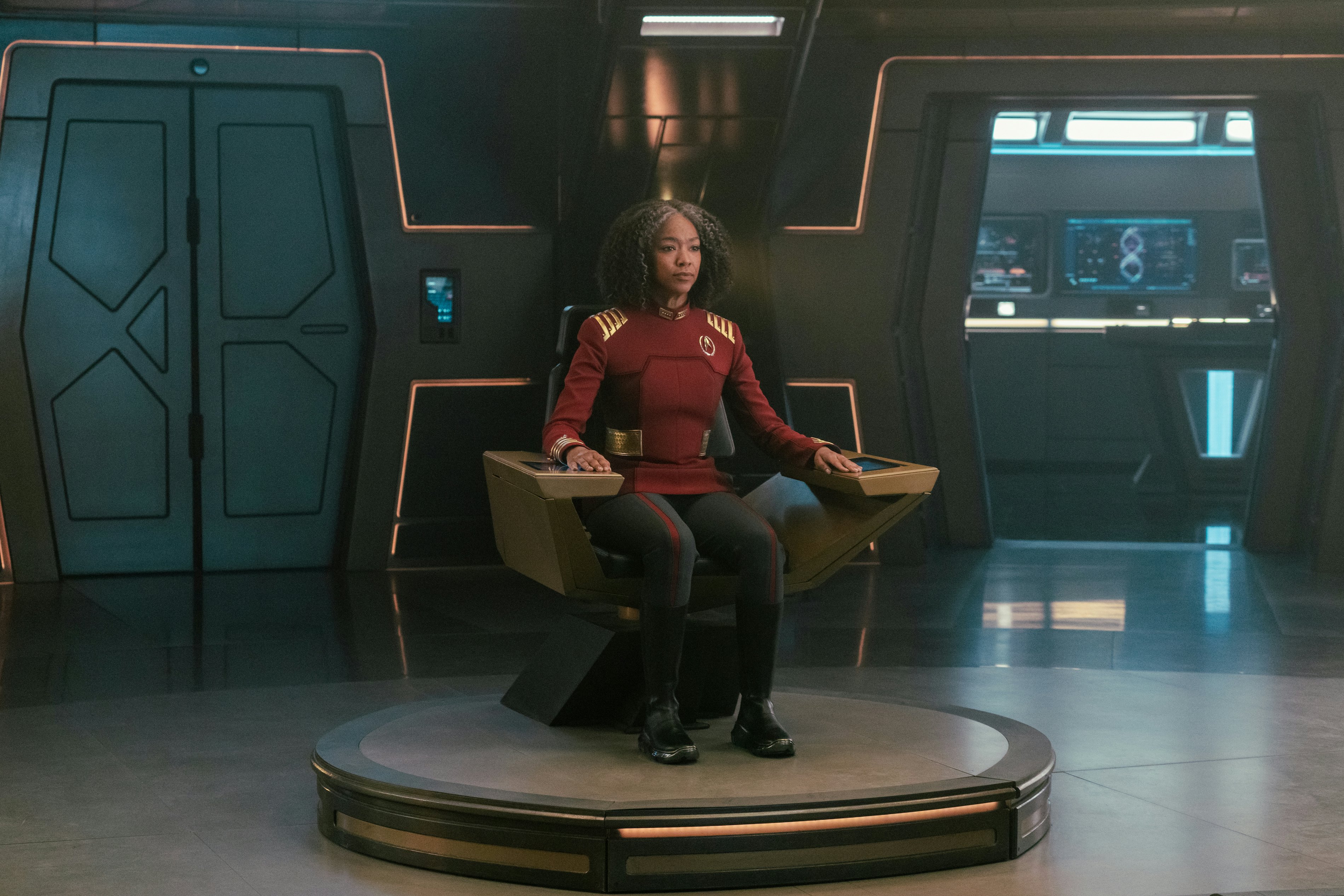
Discovery’s last bit of housekeeping was reconciling a strange bit of canon introduced in the 2018 Short Treks episode “Calypso.” That short depicted the USS Discovery adrift and empty, with only a friendly, sentient AI named Zora (Annabelle Wallis) aboard. In this distant future, a human named Craft (Aldis Hodge) boards the ship and has a romance with Zora, who projects herself as a hologram.
Ever since “Calypso” aired, fans have wondered whether it took place in an alternate future, or if it would ever fit with the 32nd-century timeframe Discovery eventually arrived in. While we saw Zora’s sentience emerge after “Calypso,” the episode’s questions remained unanswered.
“I dodged those questions for years!” Paradise says. “But it felt like we needed to tie it back to ‘Calypso’ for people who had seen the short. But we also wanted to do it in such a way that if people hadn’t seen the short, they wouldn’t be like, ‘What are they talking about?’”
In the end, Discovery is sent on a top-secret “Red Directive” mission, which requires Zora to have her fateful meeting with Craft at some point in the future. Even Burnham doesn’t know why, but if Discovery doesn’t meet Craft, then something about the timeline won’t be quite right. Paradise says these scenes were created to emphasize character, rather than connecting dots for the sake of it. We see Discovery end up where it's supposed to end up, but the why had to remain a secret to preserve the moment’s emotional integrity.
“We felt it was important to answer the question — what happened to one of the main characters, the ship itself,” Paradise says. “Ultimately, any version of that where we went into plot started to take away from the emotional experience. And ultimately why they had to go out there didn't feel as important as the fact that Burnham’s going to be the one to take the ship out. One last time.”
Star Trek: Discovery streams on Paramount+.
Phasers on Stun!: How the Making — and Remaking — of Star Trek Changed the World
